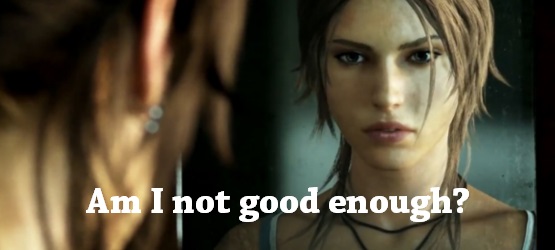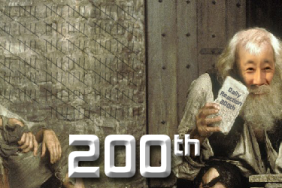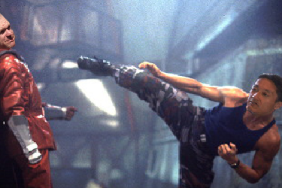Female representation in the games industry has always been a problem, and now it has been revealed that publishers are turning down studios who develop games with a leading lady. With that, the Daily Reaction crew of Seb and Dan discuss the issues that surround giving women a leading role in games.
Dan: After the recent news regarding the problems developer Dontnod Entertainment had finding a publisher for their upcoming title Remember Me, we have to ask ‘Why?’ In an interview with Penny Arcade, creative director Jean-Maxime Moris said that they could not find a publisher to pick up the title, as no one believed it would succeed with a female protagonist. One of the biggest issues that seemed to arise was the fact that the leading female, Nilin, was set to be in a relationship with a male character, forcing the player into the role of dating a man. This conflict stems far beyond the simple construct of publishers being sexist against females, but to a social problem that sadly is still exists today.
Developers can find difficulties getting a game published due to the publisher’s perception of the audience they are trying to appeal too. A military game starring a super masculine male is seen as the prime candidate for males as it is an exemplification of the gender roles we as a society deem appropriate. But, in this same sense, it can be seen as inappropriate or socially awkward for a male to play as a female character, as she will not portray the appropriate gender roles for males to understand. This conflict of roles, while seemingly obvious, becomes a problem when the product is being sold universally to each gender, as sales for games with a leading female do apparently see a significant drop when compared to their male counterparts, according to Geoffrey Zatkin, the Chief Operating Officer of EEDAR.
Male-only hero games sold 25 per cent better than those with an optional female hero, and 75 per cent better than whose with a female-only hero.
However, this information was also raised with the issue that not all games receive an equal treatment when it comes to marketing, as there seems to be a discrepancy between the allocated budget for titles depending on the sex of the protagonist. Zatkin concluded:
Games with a female-only protagonist got half the spending of female optional, and only 40 per cent of the marketing budget of male-led games. Less than that, actually.
Seb: This is just depressing, and embarrassing… this shouldn’t even need to be a conversation. People should see male and female characters as the same, and get over it already. Unfortunately, that doesn’t seem to be the case.
Publishers don’t market female protagonist games as much because they don’t sell as much, or they don’t sell as much because they don’t market them as much. We don’t know which way around that’s supposed to be, and clearly publishers don’t either. But the end result is that the profit-driven, shareholder-accountable publishers think that female driven games are less likely to sell as well, and so they don’t make as many, don’t market them as much and don’t put much as faith in them, ultimately contributing to their failure. Publishers then use those failures to point out why they’ll make less female-led games and it perpetuates.
There’s also another point that people have all failed to raise – the types of games that are generally given to female protagonists. Because having a female protagonist is unusual, the kinds of developers that push for them are generally ones that are trying to be different elsewhere too. Mirror’s Edge, a game often lauded for its correct portrayal of a female lead, was very different: had Faith been a man, the title would still have been very unique, have pushed boundaries and, sadly, not been as big of a financial success as, say, DICE’s other franchise, Battlefield. The same goes for the unique Beyond Good & Evil.
However, take a more mainstream title like Tomb Raider, something that appeals to the very popular action-adventure genre, and has seen a ton of publisher support, and it’s a runaway success. That should be the model to which other publishers aspire.
I do worry about Remember Me, because it looks like quite a different new IP, it’s not coming out at the best of times, and Capcom aren’t the best of publishers. There are many reasons it could end up being a financial failure, sadly, but people, and publishers will blame the fact that it had a female lead.
Sigh.
What do you think of female leads in video games? Do you think that women are a major factor to drive or drop sales? Why do you think these problems exist? Let us know in the comments, or by emailing us at [email protected]. You can also find us on Twitter as Seb and Dan, where we talk about manly things like guns, tanks, and ponies.








